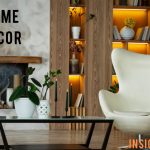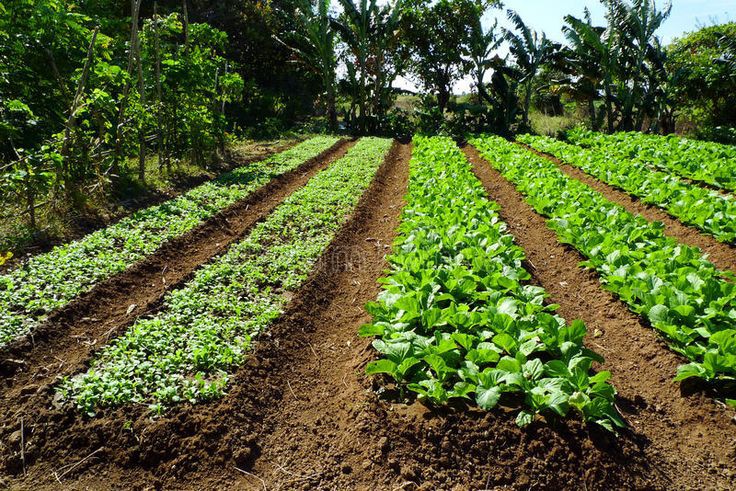Nigeria’s fields, which are adorned with the products of organic labour, are a symbol of the perseverance of a people who follow the cycle of sustainable agriculture. In that embrace, we find nourishment and the most beautiful melody of a future well-tended by conscientious stewards (the organic farmers in Nigeria).
Imagine strolling through a thriving farm where the air is crisp, and the soil is alive. Without synthetic pesticides or fertilisers, the plants stand tall and proud, their fruits and vegetables bursting with flavour and nutrients. This is the essence of organic farming, a growing practice in Nigeria that promises a healthier and more sustainable future for agriculture.
Follow me as we discuss organic farming in Nigeria, its pros, cons and future possibilities.
Table of Contents
What is Organic Farming?
Organic farming is an agricultural approach that prioritizes environmental-friendly and sustainable practices. It involves growing food and raising animals without artificial additives like pesticides, fertilisers, or genetically modified organisms (GMOs).
Organic farmers instead rely on organic techniques like crop rotation, composting, and biological pest management to preserve soil fertility and control pests. The fundamental principles of organic farming are soil health, biodiversity, sustainable agricultural practices, and avoidance of GMOs and synthetic chemicals.
Read also: Why You Should Venture Into Agriculture in Nigeria.
Pros of Organic Farming in Nigeria
Organic farming offers many benefits, both for the environment and human health.
-
Water preservation
Organic farming can significantly decrease water pollution since it avoids chemical-intensive methods. Natural water sources are preserved by the lack of artificial fertilizers and pesticides, which benefits both agricultural areas and the larger aquatic ecosystems.
-
Protection of biodiversity
Nigerian organic farming protects biodiversity. Plant and animal species find refuge on organic farms because they are not exposed to synthetic chemicals that could harm beneficial organisms. Through organic farming, a balanced healthy environment is encouraged, and ecosystem health is enhanced by the preservation of biodiversity.
Read also: Climate Change and Environmental Policies in Nigeria: Urgent Action Needed?
-
Production of quality farm produce
Producing healthier crops devoid of pesticide residues that could endanger consumer health is the result of organic farming. Imagine markets where you have farm products devoid of artificial pesticides, where the sight and aroma of fresh vegetables greet you with excitement. By avoiding dangerous chemicals, organic farming puts the health of its customers first, producing food that not only satisfies the body but also honours the natural order.
Additionally, organic farming encourages sustainable farming methods that preserve natural resources and lessen dependency on fossil fuels.
-
Promotion of a balanced ecosystem
In organic farming, the use of natural predators for pest and disease management promotes a balanced ecosystem. Farmers use resistant crop varieties and natural predators to manage integrated pests. This strategy lessens reliance on chemical interventions by promoting a balanced ecosystem, even though it requires close observation.
-
Increase in soil fertility
Compost and organic fertilizers improve soil fertility and increase its resistance to climate change. Farmers establish resilient ecosystems by increasing soil fertility through organic farming practices. In turn, these ecosystems help crops overcome the difficulties brought on by a changing climate, guaranteeing consistent crop production for years.
-
Promotes economic growth
The emergence of organic markets gives organic farmers a venue to exhibit their goods, opening up financial channels that transfer wealth throughout the neighborhood. This empowerment carries over outside the fields and adds to the overall vibrancy of the country.
Join our WhatsApp community to access opportunities and resources that will benefit you.
Cons of Organic Farming in Nigeria
Despite its numerous advantages, organic farming faces certain challenges in Nigeria.
-
It takes time
Starting an organic farm journey necessitates a transitional period during which yields may first decline. Farmers used to traditional farming methods must be patient and dedicated during this adjustment period in order to eventually realise the benefits.
-
False beliefs
The notion that organic farming is less productive than conventional methods is one of the main barriers. This false belief stems from a lack of knowledge about the long-term advantages of organic farming, like enhanced soil health and decreased pest pressure.
-
Lack of market infrastructure
Organic farmers face difficulties in gaining access to mainstream markets. Farmers seeking broader reach may face challenges due to a lack of established market infrastructure for organic products.
-
Lack of organic inputs
Another issue is the scarcity of organic inputs like certified seeds, fertilizers, and pest control solutions. Because of this scarcity, the cost of organic production often rises, making it less accessible to some farmers.
-
Lack of resources
Furthermore, a lack of adequate storage and transportation facilities for organic produce can result in post-harvest losses, impeding the sector’s growth.
Read also: How Planting Trees Can Save And Help Africa’s Economy.
The Future of Organic Farming
Nigerian organic farming’s future is entwined within a well-being oriented society. Imagine families choosing the food that goes on their tables with knowledge. Organic produce is in high demand as health-conscious consumers are increasing day by day.
Knowing that every bite is a step towards a healthier lifestyle is more important than paying attention to just having something on the plate. Our country should actively embraced the connection between health and nutrition.
Government programmes like the National Organic Agriculture Policy should support farmers, encourage organic farming, and make organic inputs more accessible. Policy support is critical for organic farming to thrive in Nigeria. Governments and agricultural organisations are essential in fostering an environment that supports organic practises, providing incentives, and laying out precise guidelines.
A key component of sustainable land management is organic farming. If taken care of, soil starts to breathe and becomes a living thing that supports life. In this future, protecting the environment is not only a personal decision but also a shared duty ingrained in the very principles of agricultural methods.
The emergence of cooperatives and associations for organic farmers encourages information exchange and cooperation among organic producers. These networks enable farmers to adopt sustainable practices, enhance production methods, and successfully access markets.
The organic movement can advance by providing farmers with information about organic practises, advantages, and market opportunities. Investing in education collectively is necessary to cultivate organic farming’s future.
Nigerian organic farming’s future is intricately linked to technological advancements. Without sacrificing organic principles, incorporating technology can improve efficiency in anything from sustainable irrigation methods to precision agriculture. Nigeria is positioned to take the lead in the global adoption of sustainable farming practices, nurturing organic products and a more sustainable and healthy future for everybody.
Conclusion
Every organic farm is built around a promise: a promise to the land, a promise to the farmer, and a promise to the consumer. This promise is rooted in an enduring truth that by fostering nature’s harmonious composition, we not only cultivate crops but also leave a sustainable legacy for future generations.
Nigeria’s agricultural landscape and environmental sustainability might be significantly improved by organic farming, which would also promote economic growth and public health. Nigeria can create a more prosperous future fed by organic farming by tackling obstacles and seizing opportunities, as regards organic farming.
For more valuable articles on how to live a healthy, wealthy, fun, and impactful life, subscribe to our newsletter.
Edited by Oluwanifemi Akintomide.
About Author
-
Tomi Taiwo is a Freelance Writer, Social Media Strategist, and Author. He creates and develops quality, tailored, and optimised content, and has written books/ articles for Lifestyle, Automobile, Finance, and Personal Development niches.
He is a lover of music, fashion, arts, enjoys reading and is passionate about research, growth and development.
Latest entries
 Business InsightsDecember 7, 2023Organic Farming in Nigeria: Its Pros, Cons, And Future Possibilities
Business InsightsDecember 7, 2023Organic Farming in Nigeria: Its Pros, Cons, And Future Possibilities TechnologyAugust 31, 2023A Guide to Buying and Using an External Hard Drive as a Techie
TechnologyAugust 31, 2023A Guide to Buying and Using an External Hard Drive as a Techie SpiceAugust 11, 2023How to Identify Nigerian Hip Hop Musicians
SpiceAugust 11, 2023How to Identify Nigerian Hip Hop Musicians LifestyleAugust 1, 2023Home Decor Ideas That Will Make Your House Stand Out
LifestyleAugust 1, 2023Home Decor Ideas That Will Make Your House Stand Out

